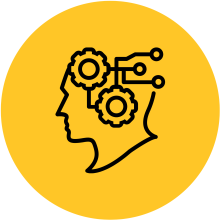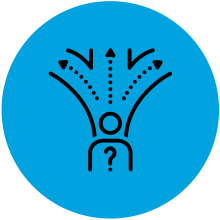
AI & Ethics

Escaping Flatland: Understanding Multi-Dimensional Potentials of AI Literacies in College Research and Writing
The field of writing practices is not merely skills; it is expression, interpretation, negotiation, communication, reflexivity, and more. The more we conceptualize the development of large language models as a process resulting in new writing technologies rather than as a precursor to general artificial intelligence, the closer we get to thinking about AI literacy as a contact zone, and the further we get from Flatland conceptions of this technology. We propose teaching students that, as part of an ensemble of activities, AI literacy is a way to discern the ethics of knowledge rendered through a relationship with a technological interface. We encourage all those in the academe to consider: if these technologies are here to stay, how can we empower students to do something about their ethical commitments, given the power embedded in these interfaces.

AI and Higher Education: Trajectories and Questions
Generative artificial intelligence is diffusing throughout society, adoption decision by adoption decision. Simultaneously, long-standing practices in higher education are being reconsidered and reimagined. While many of the narratives we hear about AI focus on possibilities and potential, to innovate in a principled and ethical way, we must also critically evaluate these systems and the stories about them. By doing so, we can surface what we collectively want the adoption of AI to actually accomplish and the means by which we get there. For academics, now is the time to become involved in asking questions about AI and envisioning the trajectory of higher education we want.
Who Are We?
The AI Ethics workgroup is a collaborative forum dedicated to navigating the complex ethical challenges arising from the rapid advancements in artificial intelligence. Comprised of experts from fields such as tech ethics, data science, and critical technology studies, the group endeavors to establish ethical guidelines and frameworks for the responsible development and deployment of AI technologies.
Our Goals
Engage in critical discussions about the technologies categorized as “AI” and their broader social impact
Shape a collective understanding of responsible AI practices and policies, fostering an environment where innovation aligns with human values and societal well-being
Contribute to a future where AI is developed and utilized ethically, ensuring the prioritization of justice and human rights










